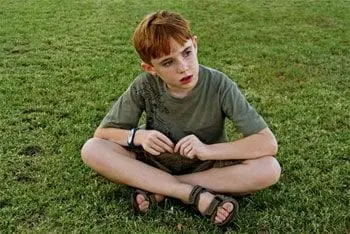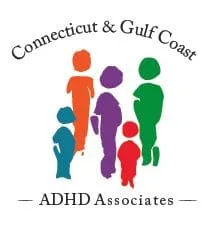Connecticut & Florida Autism Specialists
Autistic Spectrum Disorders (ASDs)

As a parent, you’ve probably spent hours poring over books, Web sites, and magazine articles to determine if your child is developing normally. While there is a wide range of “normal,” most children hit milestones like smiling, crawling, walking, and talking at about the same age. But what if your child consistently lags behind his peers, especially in communication and social skills? You might be tempted to “wait it out” or chalk it up to shyness, but it is wise to resist that temptation. Instead, think about having your child screened for an autism spectrum disorder (ASD).
ASD is a developmental disorder characterized by problems with social communication, unusual and/or repetitive behaviors, or abnormal responses to sensations. Communication problems include difficulty understanding and respondingto social cues and nonverbal communication such as gestures and tone of voice, which can results in challenges in making or keeping friends. Although people with ASD may want to make friends, difficulties in understanding social norms and facial expressions can get in the way.
ASDs (referred to here as “autism”) are difficult to define in broad terms because the symptoms and their severity vary from person to person. However, the National Institute of Child Health & Human Development has created a list of typical “red flags” that may point to autism.
While there is no “cure” for ASD, there is medication available that can help with the host of other difficulties that can as problematic as the symptoms of ASD itself. Anxiety, mood instability, impulsivity, hyperactivity, sleep problems, and even aggression and self-injurious behavior can occur in some people with ASD. Medication may be helpful in treating the symptoms of some of these associated conditions. Unfortunately, no medication has shown to offer clear improvement for the social communication impairment or restricted, repetitive behaviors that make up the core issues of patients with ASD.
These efforts are paying off. Many autism specialists and experts have attributed the increased prevalence of autism in recent years not to a greater incidence of the disorder itself but to improved awareness of the early signs and symptoms of autism by parents and pediatricians alike. In fact, the U.S. Centers for Disease Control and Prevention (CDC) has revised the autism diagnosis rate over the past few years from 6 in 1,000 to roughly 9 in 1,000 (or nearly 1 in 110) children.
Improved autism awareness, along with a number of research projects, also is helping to reduce the social stigma associated with autism and dispel some of the myths.
One myth is that routine vaccinations can bring on autism in a normally developing child. Many studies have looked at this claim and, to date, none have found any scientific evidence to support it.
Autism spectrum disorders are lifelong conditions with no known cure. However, children with ASD can progress developmentally and learn new skills. Some children may improve so much that they no longer meet the criteria for ASD, although milder symptoms may often persist.
No two children with ASD have the exact same symptoms, but the criteria of ASD are somewhat standardized. The number of ASD symptoms and how severe they are can vary greatly. The following are examples of how a child with ASD may act:
ASD Symptoms
Social Differences
- Doesn't snuggle when picked up, but arches back instead
- Doesn't keep eye contact or makes very little eye contact
- Doesn't respond to parent's smile or other facial expressions
- Doesn't look at objects or events parents are looking at or pointing to
- Doesn't point to objects or events to get parents to look at them
- Doesn't bring objects to show to parents just to share his interest
- Doesn't often have appropriate facial expressions
- Unable to perceive what others might be thinking or feeling by looking at their facial expressions
- Doesn't show concern (empathy) for others
- Unable to make friends
Communication Differences
- Doesn't say single words by 15 months or 2-word phrases by 24 months
- Repeats exactly what others say without understanding its meaning (parroting or echolalia)
- Doesn't respond to name being called, but does respond to other sounds (like a car horn or a cat's meow)
- Refers to self as "you" and others as "I" (pronominal reversal)
- Often doesn't seem to want to communicate
- Doesn't start or can't continue a conversation
- Doesn't use toys or other objects to represent people or real life in pretend play
- May have a good rote memory, especially for numbers, songs, TV jingles, or a specific topic
- Loses language milestones, usually between the ages of 15 to 24 months in a few children (regression)
Behavioral Differences (Stereotypic, Repetitive, And Restrictive Patterns)
- Rocks, spins, sways, twirls fingers, or flaps hands (stereotypic behavior)
- Likes routines, order, and rituals
- Obsessed with a few activities, doing them repeatedly during the day
- Plays with parts of toys instead of the whole toy (for example, spinning the wheels of a toy truck)
- May have splinter skills, such as the ability to read at an early age, but often without understanding what it means
- Doesn't cry if in pain or seem to have any fear
- May be very sensitive or not sensitive at all to smells, sounds, lights, textures, and touch
- Unusual use of vision or gaze—looks at objects from unusual angles
- May have unusual or intense but narrow interests
Many children with ASD may show developmental differences throughout their infancy, especially in social and language skills. Because they usually sit, crawl, and walk on time, these more subtle differences often go unnoticed. A child with ASD may have
- Not smiled back to you or smiled less often or less enthusiastically than you expected.
- Not cuddled like other children.
- Not made as much eye contact with others.
- Not responded to her name being called.
- Seemed to tune others out. At other times, she may have seemed to hear environmental sounds, even very faint ones, perfectly well. This was probably confusing and may have caused you to worry about a hearing problem.
All children with autism show significant language delays. Those children later diagnosed with Asperger syndrome will seem to have met
language milestones during the toddler years, but use of language may be abnormal.
About 25% of children will seem to have normal development until about 18 months, after which they will gradually or suddenly
- Stop talking (if they had begun to say a few words).
- Stop waving goodbye.
- Stop turning their heads when their names are called.
- Withdraw into a shell and seem more distant and less interested in their surroundings.
Although all children with ASD will need developmental and educational services and most will need therapy and behavioral interventions, only certain children may need medicine. Medicine may be needed to control behaviors that could interfere with ASD interventions. Aggressive or disruptive behaviors can become a problem when they cause physical harm to others (or to the child himself) or when they prevent him from cooperating with therapists or teachers.
Parents are encouraged to learn as much as they can about all the different Autism treatments available. Treatment should focus on supporting the child to succeed in the real world.
For more information on Autism Spectrum Disorders call Connecticut & Gulf Coast ADHD Associates at (860) 757-3352 (CT) or (941) 201-1221 (FL) today!

